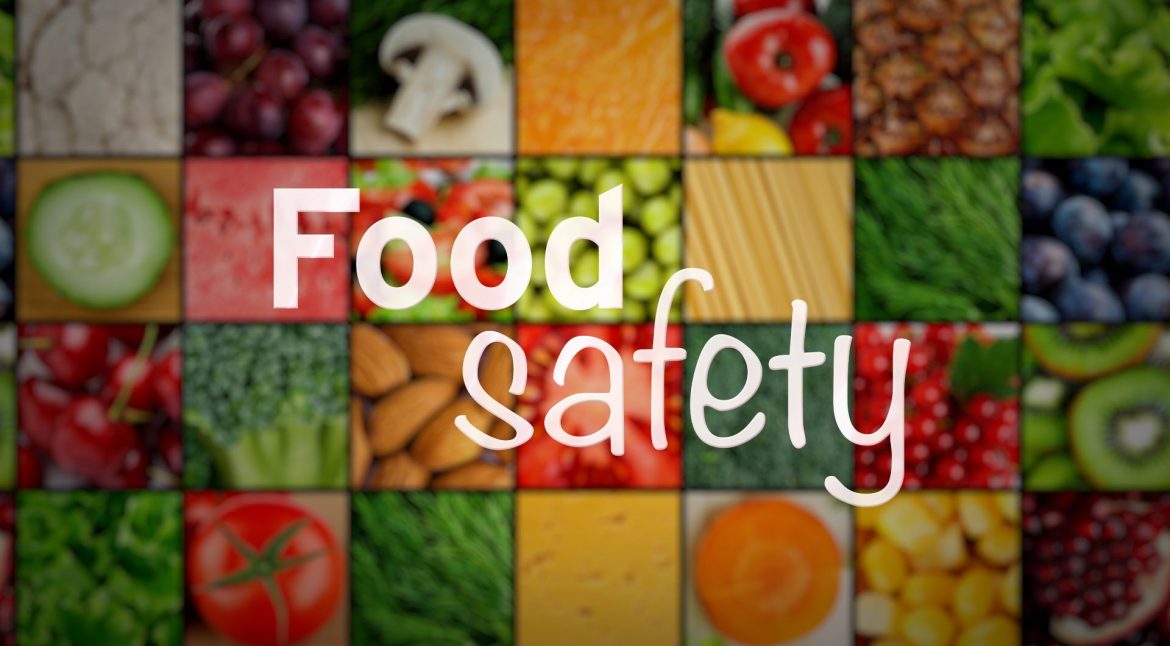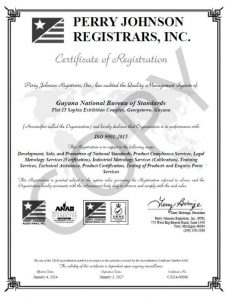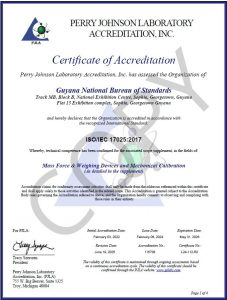Over the last couple of weeks, focus was placed on technical assistance provided by the Guyana National Bureau of Standards (GNBS) to local businesses for them to effectively implement a Quality Management System, and an Occupational Safety and Health Management System based on the ISO 9001:2015 Standard and the ISO 45001:2018 Standard, respectively.
Ensuring the safety of food for human consumption is also important for the health and safety of our population, and it supports the sustainability of the local food sector. The GNBS cadre of experienced Technical Officers is also capable of providing Technical Assistance to Businesses desirous of implementing the requirements of the ISO 22000:2018 Standard: A Food Safety Management System – Requirements for any organization in the food chain.
The ISO 22000 standard specifies requirements for a food safety management system to help organizations demonstrate their ability to control food hazards, to ensure that food is safe at the time of human consumption. This control begins at the farm and ends at the fork.
The standard applies to all primary producers, processors, manufacturers, food service providers, storage service providers, catering service providers, transportation service providers, cleaning, and sanitation service providers.
With GNBS support, local food companies can derive many benefits from implementing this international standard. The standard allows conforming businesses to access lucrative international markets. Yes, certification to the standard will open doors to many domestic and international opportunities.
The standard also enables clear, dynamic communication across the entire supply chain through organized and targeted communication among trade partners, suppliers, customers, regulators, and other interested parties. In addition, traceability, which identifies an organization’s impact on food safety within the supply chain, can be achieved through the standard.
Additionally, the standard allows for greater confidence in the safety of food and related products that are served and delivered along the food chain. Foodborne diseases are also reduced and there is greater protection of workers in the food industry. Further, implementing the ISO 22000 reduces the risk of financial penalties caused by product recalls and litigations.
Meanwhile, many food companies are using the standard as a generator of consumer confidence. These companies use less time and effort to earn the trust and confidence of prospective customers during product promotions.
Usually, companies implementing the ISO 22000 standard have recognized the need to continually improve their products and processes to maintain competitiveness. These companies experience fewer errors, returns on customer complaints, which foster improved relationships with suppliers, business partners and customers, and give businesses a real advantage in the marketplace. The ISO 22000 food safety policy and objectives help to improve the performance of the organization.
Technical assistance offered by the GNBS is the starting point for businesses to experience the many benefits of the ISO 22000 and other ISO Standards. The process is simple and starts with the business acquiring a copy of the standard to better understand the requirements. The Bureau will then conduct a gap analysis to determine what requirements are being met and those which need to be updated. This is followed by the preparation of documents and a pre-assessment audit. The pre-assessment audit will produce a report paving the way for international certification.
If you are in the food business, don’t hesitate. Contact the GNBS for reliable, helpful, and affordable technical assistance. Our team of Officers is ready bring your businesses closer to realizing the many benefits of certification to the international standard.

11
Mar





